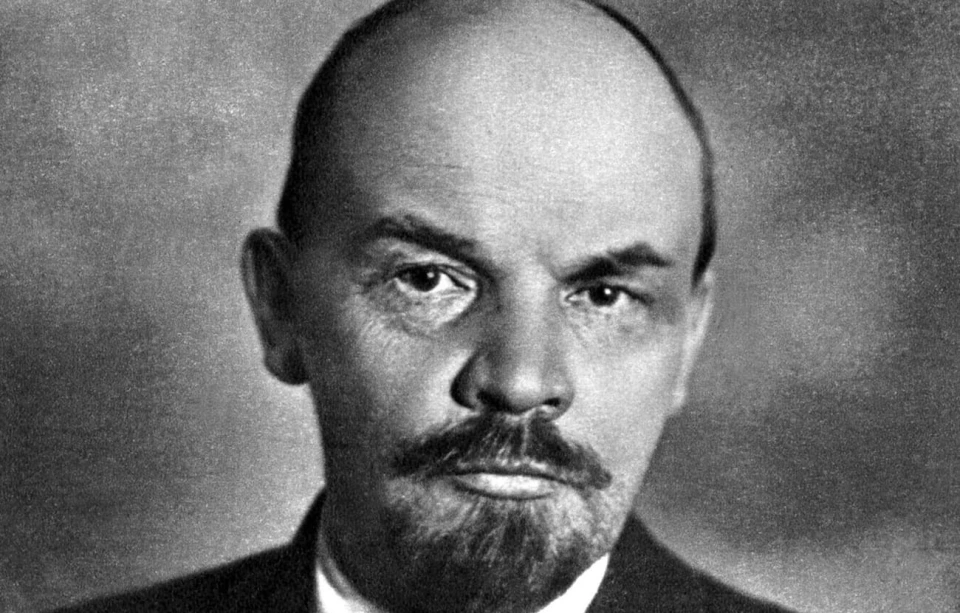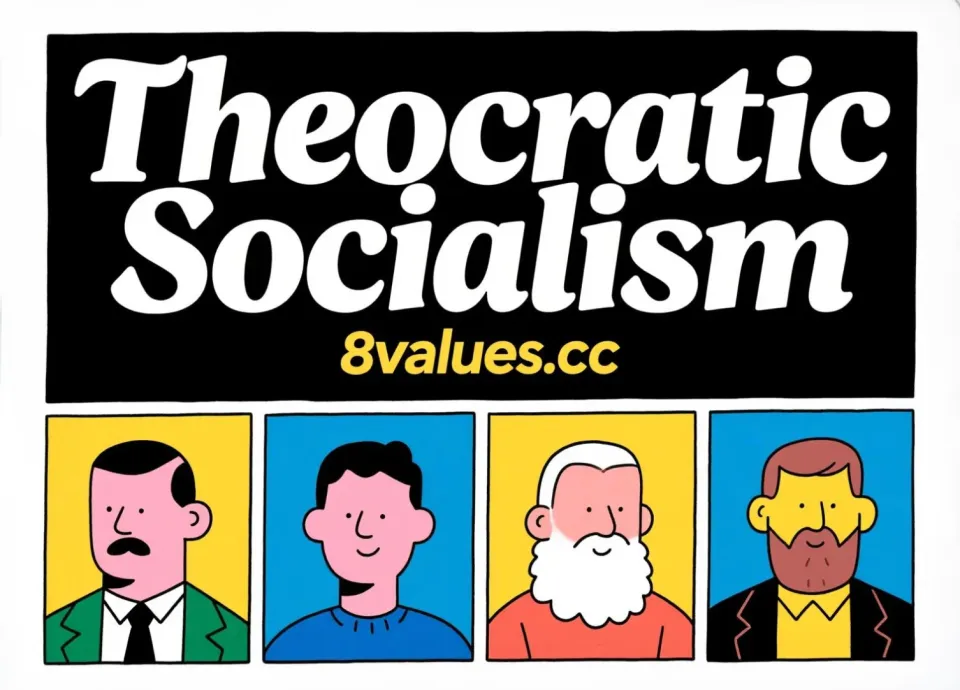Vladimir Lenin: In-depth interpretation of life, thought and historical status
Vladimir Lenin was the founder of the Alliance of Soviet Socialist Republics and the founder of the Bolshevik Party, and one of the most influential politicians of the 20th century. This article reviews Lenin's legendary life, revolutionary theory (Leninism) and its impact on the world in detail, helping readers to understand the political values and ideology represented by this historical giant. You can explore your ideological position through the 8 values test of political values tendency.
Vladimir Ilyich Lenin (April 22, 1870 - January 21, 1924), formerly known as Vladimir Ilyich Ulyanov, was born in Sinbirsk, Russia (now Ulyanovsk city). He was a great proletarian revolutionary, politician, theorist, and thinker, and served as important positions such as Chairman of the Soviet People's Committee (i.e. Prime Minister of the Soviet Union). Lenin was the founder of the world's first socialist country and the founder of the world's first proletarian ruling party. He successfully led the October Socialist Revolution in Russia, transforming socialism from scientific theory to great practice.
Vladimir Lenin's study and revolutionary enlightenment
Lenin's early life and study path laid the foundation for his later revolutionary career. He was born on April 22, 1870 (April 10, Russian calendar) in the city of Simbirsk on the Volga River. Lenin was diligent and studious since childhood. He performed excellent grades during his studies at Simbirsk Classical Middle School. He received the highest score in almost all his studies and graduated from a gold medal in 1887.
As a teenager, Lenin witnessed the hard life of urban poor and nearby farmers with his own eyes, and his heart aroused his sympathy for the working people and his strong dissatisfaction with the current social situation. He read extensively the progressive works of the Russian revolutionary democrats and was deeply influenced by revolutionary democratic thought. In his senior year in middle school, he first came into contact with Marxism and read the "Capital" brought home by his older brother Alexander Ulyanov.
In May 1887, as Lenin was about to graduate from high school, his elder brother Alexander was arrested and killed for his involvement in the assassination of the Tsar. This incident had a huge impact on Lenin, and he firmly stated: "We will not go this path." In August of the same year, Lenin entered the law department of Kazan University, but was arrested and exiled at the end of the year for participating in the Progressive Student Movement. The following autumn, he returned to Kazan, joined the Marxist group, and began systematically studying Karl Marx's "Das Kapital" and Georgi Plekhanov's works, and eventually became a Marxist.
In 1891, Lenin passed the off-campus examination of the Law Department of St. Petersburg University and obtained a diploma of honorary students. He then obtained paralegal qualifications and regularly defended poor peasants in the Samara District Court.
The struggle for party building and the formation of Leninism
In August 1893, Lenin came to St. Petersburg to organize and lead the activities of the Marxist group and actively spread Marxism. He criticized the false trends of the time by writing theoretical works, such as in 1894, "What is the "Friends of the People" and how they attacked the Social Democrats? 》, criticizing the views of the liberal populism.
In 1895, after Lenin returned to the country, he united the Marxist group in St. Petersburg to establish the St. Petersburg Working Class Liberation Struggle Association. At the end of the same year, he was imprisoned for being sued by a traitor and then exiled to Siberia in 1897. During his exile, he completed the book "The Development of Russian Capitalism" and began to use the pseudonym "Lenin". After the exile ended in 1900, Lenin switched to Western Europe and cooperated with Julius Martov to establish the first Marxist political newspaper in Russia, "Iskra".
In the struggle for the founding of the Party, Lenin established his core theory. From 1901 to 1902, Lenin wrote "What to Do?" 》 (What Is to Be Done?), criticizing the party’s “economic faction” line and Eduard Bernstein’s revisionism. He proposed the idea of building the Party into an institution with "professional revolutionary" as its pioneering core and with strict organizational discipline, namely democratic centralism.
In 1903, the Russian Social Democratic Labor Party held a congress in Brussels, forming the Bolshevik (which means the majority) with Vladimir Lenin as its core. The emergence of the Bolsheviks and their ideological system marked the formation of Leninism . Leninism was later called "Marxism in the period of imperialism and proletarian revolution" and it was a revision and supplement to the basic theory of Marxism based on Russian practice.
The biggest feature of Leninism is its theory of "proletarian dictatorship" . Lenin believed that in the imperialist stage, proletarian parties could only gain power through violent revolution. He stressed that after gaining power, even if the bourgeoisie no longer exists, it is still necessary to adopt a dictatorial approach to defend the proletarian regime, and the bourgeois democratic system should not be retained.
In terms of philosophical theory, Lenin clearly put forward the major proposition that unity of opposition is the core of dialectics of materialism in his "Philosophical Notes", and achieved a major breakthrough in the history of dialectics of materialism. He also wrote Materialism and Criticism of Experience, which systematically clarifies the basic principles of dialectical materialism and historical materialism.
World War I and Analysis of Imperialism
During World War I (1914-1918), Lenin adhered to the proletarian internationalist position. He severely condemned most Second International leaders for betraying anti-war resolutions and supporting their governments' actions to fight (social chauvinism). Lenin put forward the slogan of "turning imperialist war into civil war."
Based on the law of imbalance in the economic and political development of imperialism, Lenin proposed in 1915 that "socialism may first win in a few or even in a single capitalist country" , which was his epoch-making contribution to the socialist revolutionary theory. In 1916, Lenin wrote "Imperialism is the Supreme Stage of Capitalism", which comprehensively analyzed the essence, characteristics and basic contradictions of imperialism, and pointed out that imperialism was the eve of the proletarian socialist revolution.
Leading the October Revolution
The Russian February Revolution in 1917 overthrew the Tsar Nicholas II. Vladimir Lenin knew that he needed to return to Russia immediately, and with the help of Swiss Social Democrats, he passed through Germany on a "sealed train" arranged by Germany and arrived in Petrograd on April 16, 1917.
After returning to China, Lenin quickly became the leader of the revolutionary movement. He proposed the famous "April Outline" , pointing out that the Russian Revolution must transition from the bourgeois democratic revolution to the proletarian socialist revolution, and put forward the slogan "All power belongs to the Soviet Union" .
In July of the same year, after the "July Bloodshed Incident", the Provisional Government wanted Lenin. He lurked in a straw hut on the shore of Lake Razrif and completed the writing of The State and Revolution.
In October 1917, Lenin secretly returned to Petrograd from Finland to personally direct the armed uprising. On November 7 (October 25), workers, soldiers and sailors who supported the Bolsheviks occupied the Winter Palace, the location of the Provisional Government, and declared the overthrow of the Russian Provisional Government. It is known in history as the "October Revolution" .
On the 8th of the same month, Lenin was elected as the chairman of the First Workers' and Peasants' Government - the People's Committee. The world's first socialist country was born. The new government promulgated the Peace Act and the Land Act, and in December it established the All-Russian Extreme Committee on Purge of Counter-Revolution and Slow-off Work (Cheka for short ).
Consolidate the construction of the regime and the Soviet state
After the success of the October Revolution, the new Soviet regime faced the threat of domestic and foreign reactionary forces, including the counterattack of the remnants of the bourgeois provisional government and the armed interference of 14 capitalist countries including Britain, France, the United States and Japan. Lenin pointed out that it is urgent to consolidate the new Soviet regime and implement the dictatorship of the proletariat is the most fundamental measure to consolidate the regime.
Wartime communism and the New Economic Policy (NEP)
In order to maximize the supply of materials to deal with the civil war (1918-1920), the Soviet Union implemented the "wartime communism" policy in June 1918. This policy mainly includes the compulsory collection of farmers' grain (surplus grain collection system), nationalized large and medium-sized enterprises, the implementation of planned rationing system and a strict worker management system.
However, wartime communist policies led to economic collapse and severe famine (1921), with an estimated 5 million people starving to death. The farmers developed strong resistance to the collection of grain, and the Tambov rebellion broke out, and the Kronstad sailors also rioted.
Lenin analyzed the situation truthfully and admitted that there were mistakes in his previous plan. Starting from March 21, 1921, the Soviet Union abandoned wartime communism and instead implemented the "New Economic Policy, NEP". The main contents of the new economic policy include: replacing the surplus grain collection system with grain tax, allowing commodity purchase and sale, relaxing foreign trade controls, and allowing a certain degree of private enterprise economy to exist. The new economic policy gradually restored the Soviet economy to 1928, and industrial and agricultural output successfully returned to the level of 1913.
In economic development, Lenin put forward a famous slogan in 1920: "Communism is the Soviet regime plus national electrification." He attached great importance to the All-Russian Electrification Plan (GOELRO) and called it the "second party platform".
Construction of the ruling party and opposing bureaucracy
Lenin attached great importance to the construction of the ruling party and the construction of the Soviet regime. He stressed that the Party must continuously strengthen its own construction, improve its governing ability, carry forward intra-party democracy, and implement strict discipline to maintain the Party's advanced nature and unity. In order to improve the Marxist theory level of the whole party, Lenin promoted the large-scale publication of classic works and established local party schools at all levels nationwide.
Lenin believed that opposing bureaucracy was the "political internal task" of the Soviet state. He vigorously developed socialist democracy and believed that promoting democracy is a fundamental political measure to overcome bureaucracy. Lenin emphasized that the people's democratic rights should be restricted by continuously expanding and realizing the people's democratic rights, such as implementing the electoral system and ensuring that the people have the power to supervise and recall the state officials (recall rights). He believes that the supervision of the people is the most reflective of the essence of people's democracy and is an effective means to prevent and overcome bureaucracy.
Foreign Policy and Comintern
During the Lenin period, Soviet Russia (later Soviet Union)'s guiding principle of foreign policy was to maintain national equality and independence and autonomy, and strive for world peace and international cooperation.
In terms of capitalist state relations, Lenin advocated the policy of making necessary "compromise" to achieve "peaceful coexistence" . For example, in order to win temporary peace and consolidate the regime, Lenin opposed the opposition and firmly advocated the signing of the Treaty of Brest-Litovsk with Germany, although the conditions were very harsh.
To break the imperialist economic blockade, Lenin was committed to establishing normal diplomatic and trade relations with various countries, such as the signing of a trade treaty with Britain in 1921.
In terms of the international communist movement, after the collapse of the Second International in World War I, Lenin made a lot of preparations in theory and organization, and established the Communist International in Moscow in early March 1919. The Communist International is committed to uniting the left-wing forces of social parties in various countries and formulates the strategic and strategic principles of the international communist movement.
Lenin paid great attention to the liberation movement of colonies and oppressed nations. He enthusiastically supported the Chinese people's just struggle to resist the aggression of the great powers and feudal oppression. Under the instructions of Lenin, the Soviet government expressed on July 25, 1919 that it would return all occupied territories plundered by the Tsarist government from China. However, despite the Beiyang government's repeated consultations, the Soviet Union refused to abandon the Chinese Eastern Railway and retreat from the Outer Mongolia.
Study on life in later years, death and death
Lenin's health was severely damaged by the intense revolution and war work, and the shooting of Socialist Revolutionary Fanny Kaplan on August 30, 1918.
In April 1922, the bullet from Lenin's neck was removed. In May of the same year, he suffered his first stroke, causing partial paralysis on his right side. In December 1922, he stopped political activities after his second stroke. After the first stroke, Lenin completed a testament, commenting on six senior leaders of the Soviet Communist Party, including Leon Trotsky, Joseph Stalin , Grigory Zinoviev, Lev Kamenev, Nikolai Bukharin and Georgy Pyatakov.
In the supplement to the oral record of 4 January 1923, Lenin suggested finding a way to move Stalin from the position of General Secretary because he was "too rude". In March 1923, Lenin suffered a third stroke and has been bedridden and unable to speak until his death.
At 18:50 on January 21, 1924, Lenin died of a stroke in Gorki at the age of 54. During the dissection, medical experts believed that Lenin's cause of death was sclerosis of the blood vessel wall (artery sclerosis), and the cause was in the carotid artery.
After Lenin's death, his body was buried in the Lenin's Mausoleum on the west side of Red Square in Moscow.
Lenin's Brain Research and Historical Evaluation
After Lenin's death, in order to study the special features of his brain, the Soviet Union established a special laboratory. The research was chaired by the famous German neurologist Oskar Vogt. In his 1927 report, Vogette pointed out that Lenin's brain structure was different from that of ordinary people. His pyramidal cells were very developed and his connection fibers were very powerful. He believed that Lenin's brain texture was higher.
Lenin is widely recognized by communists all over the world as "the great mentor and spiritual leader of the international proletarian revolution."
- Joseph Stalin praised Vladimir Lenin for his simple, humble and unpretentious characteristics, and commented on the logic in Lenin's speech that "like the omnipotent tentacles."
- Sun Yat-sen highly admired Lenin and believed that he was the "hero of thousands" who turned theory into reality.
- Churchill once commented that for the Russian people, the worst thing is the birth of Lenin, and the second worst thing is his death.
- Jawaharlal Nehru (former Prime Minister of India) believes that Lenin's theory is constantly revitalizing, and he is one of the few immortal figures in the world.
As a new development and new achievement of Marxism in the era of imperialism and proletarian revolution, Leninism opened up the road to nationalization of Marxism. Some Chinese scholars believe that Lenin's thought plays a role in connecting the past and the future in the history of Marxism's development, and still has important inspiring significance and reference value for the comprehensive realization of socialist modernization.
If you are interested in the origins and impacts of different ideologies, you can learn more through the 8values All Results Ideology page, and please continue to browse our official blog for more.







